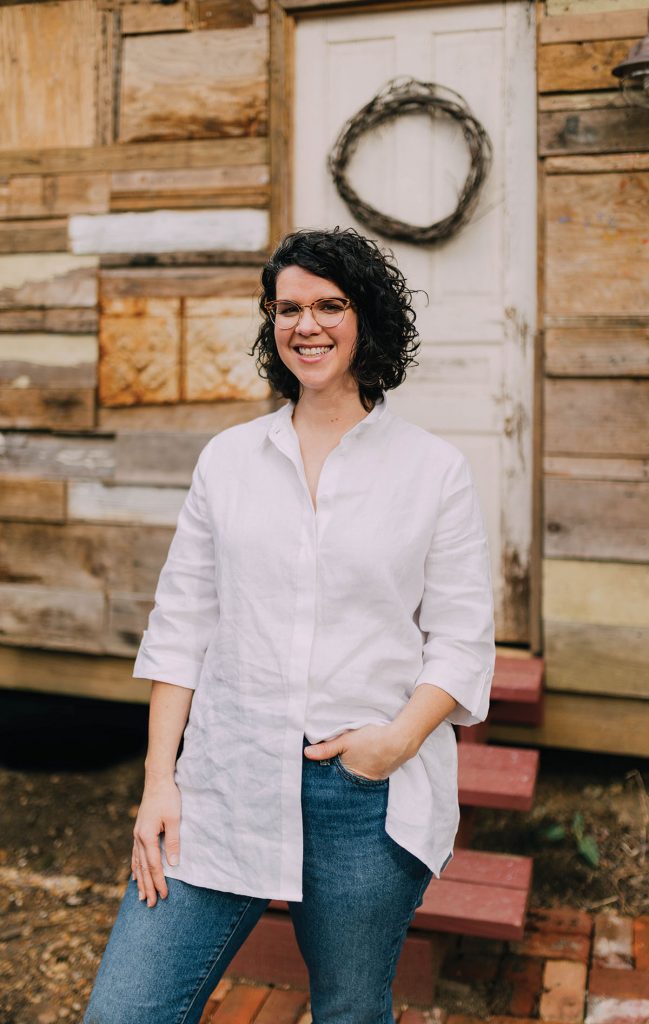
Chelsea Ragan applauds the everyday. “Domestic life is not thought of in an artistic way,” says the illustrator, mother of a 2- and 5-year-old. She redirects that notion, choosing subjects like overflowing clothing hampers and old-school playground equipment, console TVs and laundromats with black-and-white checkered tile.
Her art hasn’t always centered on the home. Before moving to Black Mountain in 2012 with her husband Adam Void, a street-style artist, Ragan was still influenced by a multidisciplinary graduate program at the Mount Royal School of Art in Maryland. Her style tended toward rawness. It was cathartic; however, “I always created things that were hard,” she says. Complex in narrative and imagery, her early art “was draining and emotionally difficult to make. After becoming a mother, I realized how important it was to reevaluate what I bring into the world … I was on a search to make art that spreads joy.”
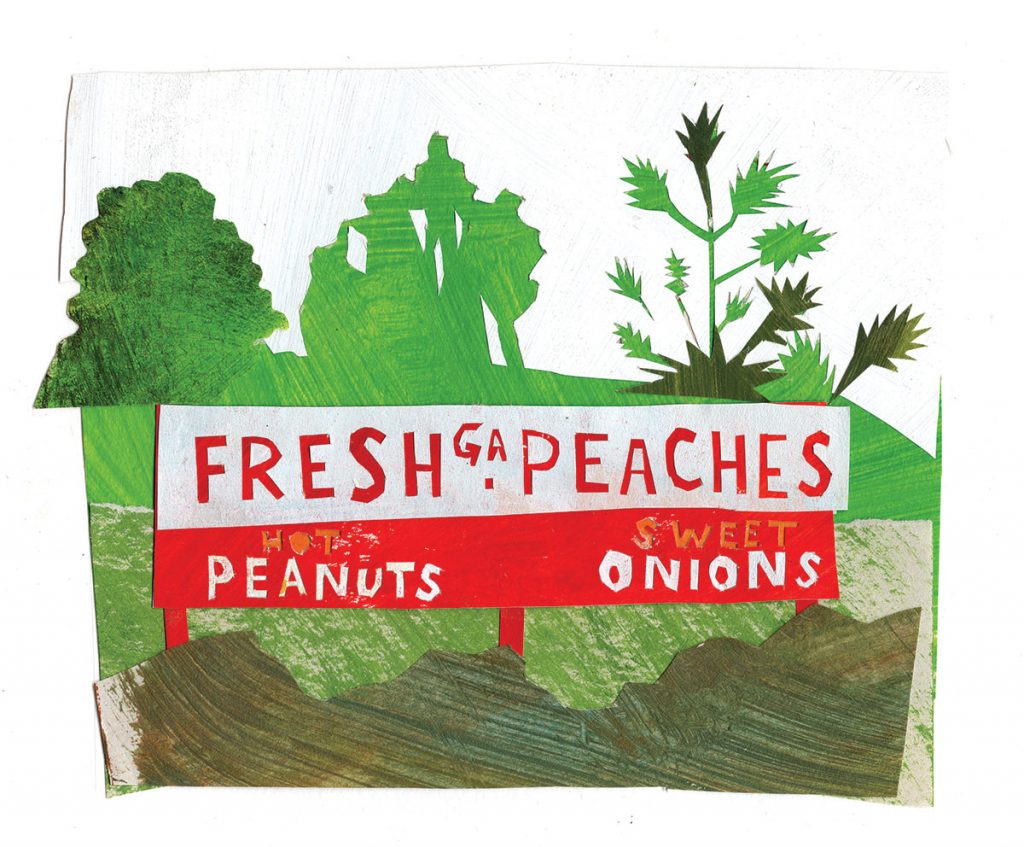
For several years, she says, she just “let life be.” It wasn’t until a year ago that she rekindled the desire to create. Her collages now are crafted during her children’s nap times and other stolen moments. She begins by painting paper in a scheme of color tones. To add texture, she varies her brushstrokes — swirls, a water wash, thick layers. Her palettes read nostalgic, with more sweetness than kitsch. When the images are cut and pasted back together, the effect is jaunty, like AM radio, and sometimes just as poignant. (Two national print magazines, the design journal Origin and the girls’ publication Bravery, recently featured Ragan’s work. She was also commissioned to do a series of local, vintage-inspired postcards.)
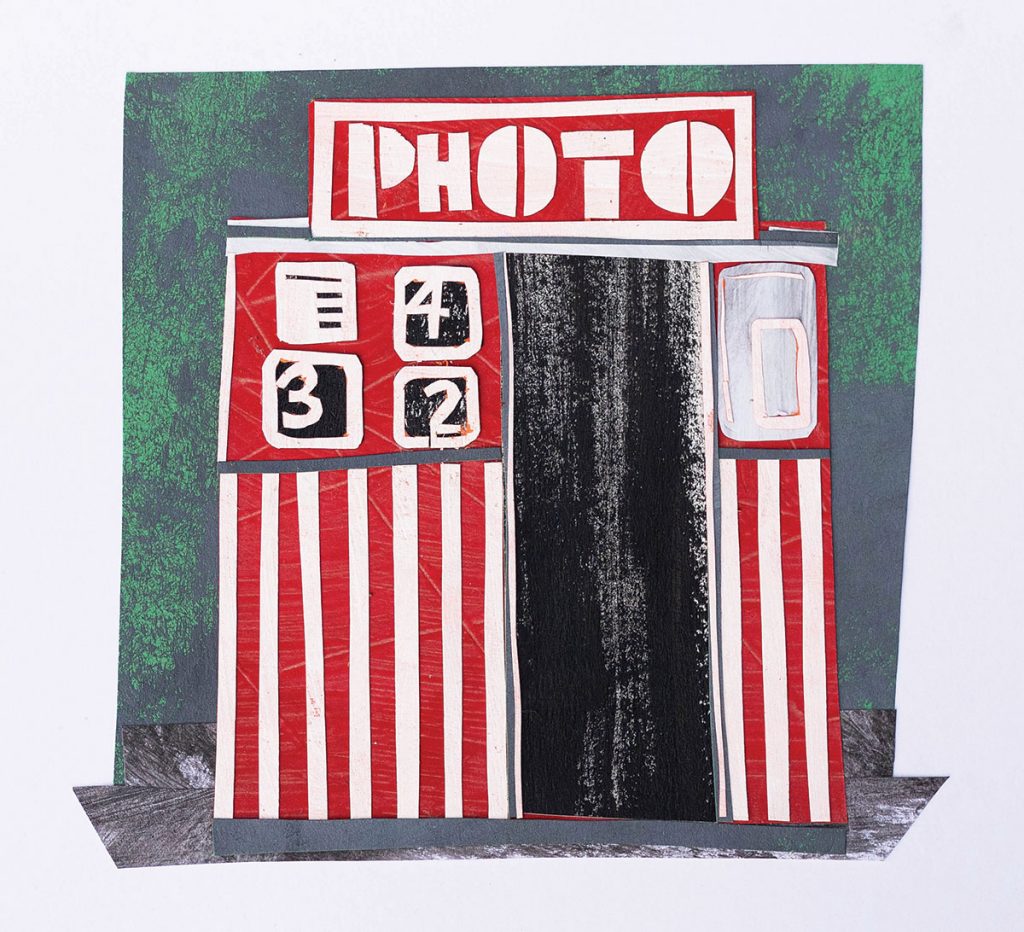
In many ways, much about Ragan is retro. She’s one of few people in recent memory to call from a landline, having ditched her mid-2000s smartphone eight years ago. “I feel so far removed,” she admits with a laugh.
Her vintage aesthetic is reminiscent of sleepy towns in southern Georgia, where she spent her formative years. Raised with little money, she remembers that grocery stores evoked a certain joy: She could peruse the candies and chat with friends. In adulthood, bakeries, delis, drive-ins, and vending machines, “quiet and nostalgic,” fill a similar need.
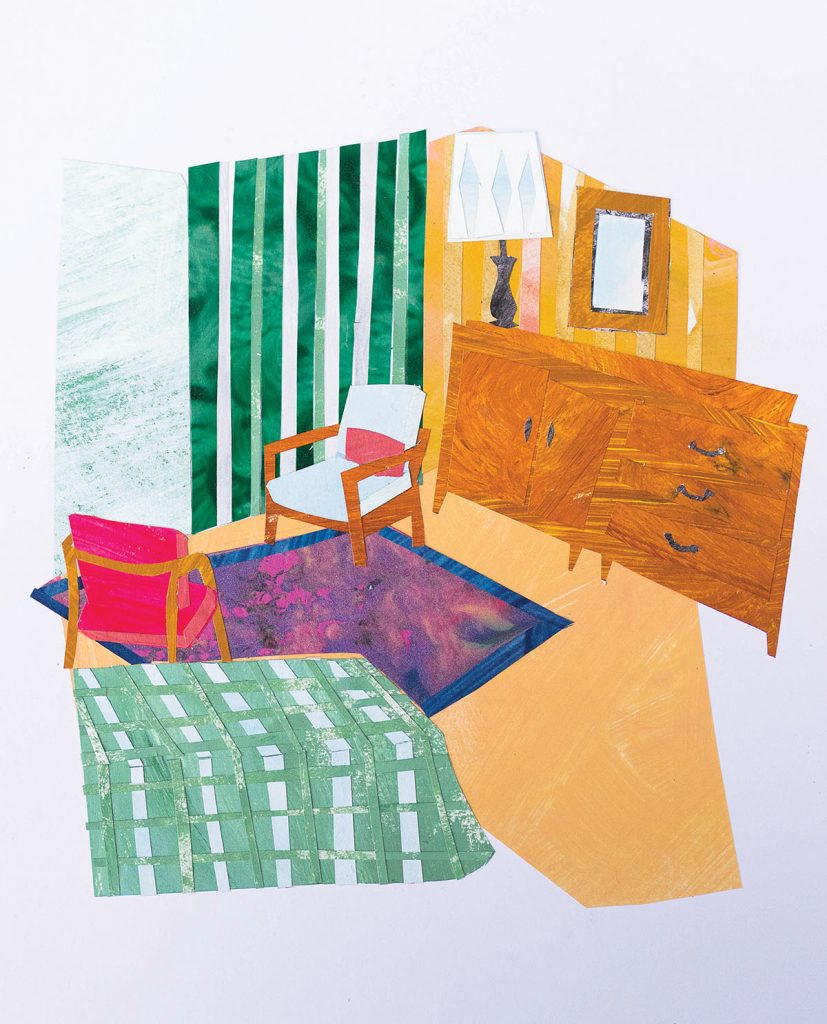
The illustrator mostly shies away from depicting people, though her portfolio does include a handful of them — a Mid Century woman selecting fruit, a couple sunbathing, two children in the tub. Ragan removes figures but leaves elements of their personhood, like sliced peaches and laundry-detergent boxes.
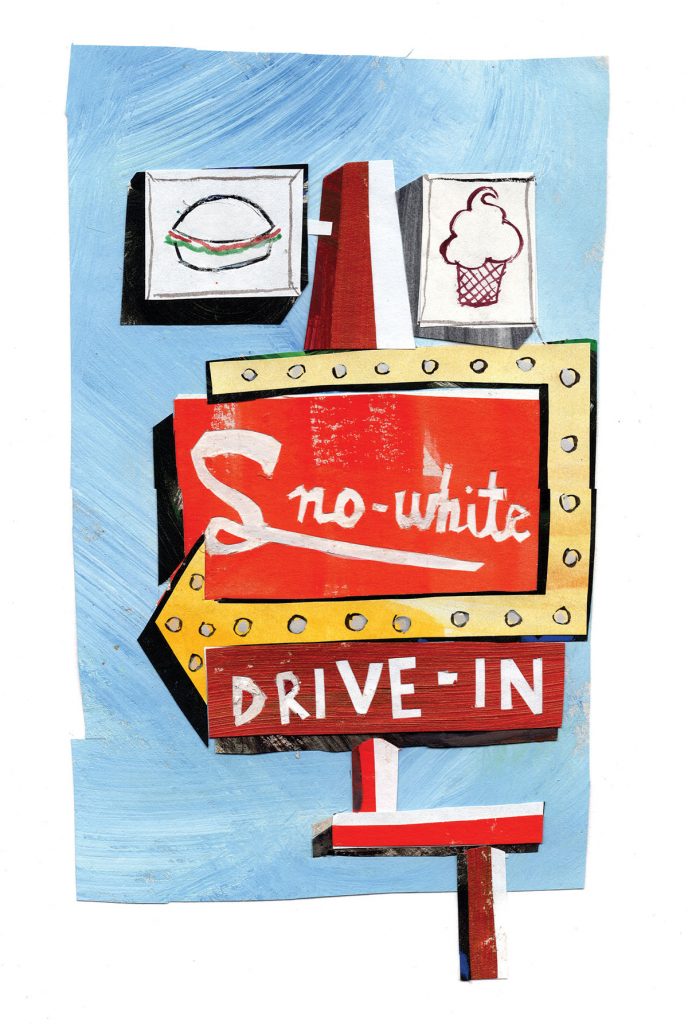
In that way, she positions art as a conduit for human connection and self discovery. In addition to her collages and commissioned pieces, she and Void run a boutique press, Cut in the Fence, that publishes hard-to-find art zines, including Void’s own series and those of artists from around the world. The duo also co-founded School of the Alternative, an immersive, passion-driven educational experience usually held in spring (cancelled this year due to the COVID-19 pandemic). The school renews the spirit of influential Black Mountain College (1933-1957), and, in past years, was hosted in the college’s footprint at the YMCA Blue Ridge Assembly. Instructors volunteer their time to lead unconventional surveys in topics like screenwriting and analog technology.
Both the school and zine business reflect Ragan’s desire to find meaning in the ordinary — clothes drying on the line at her grandparents’ farm, a derelict department store, an elementary-school jungle gym, a roadside produce sign.
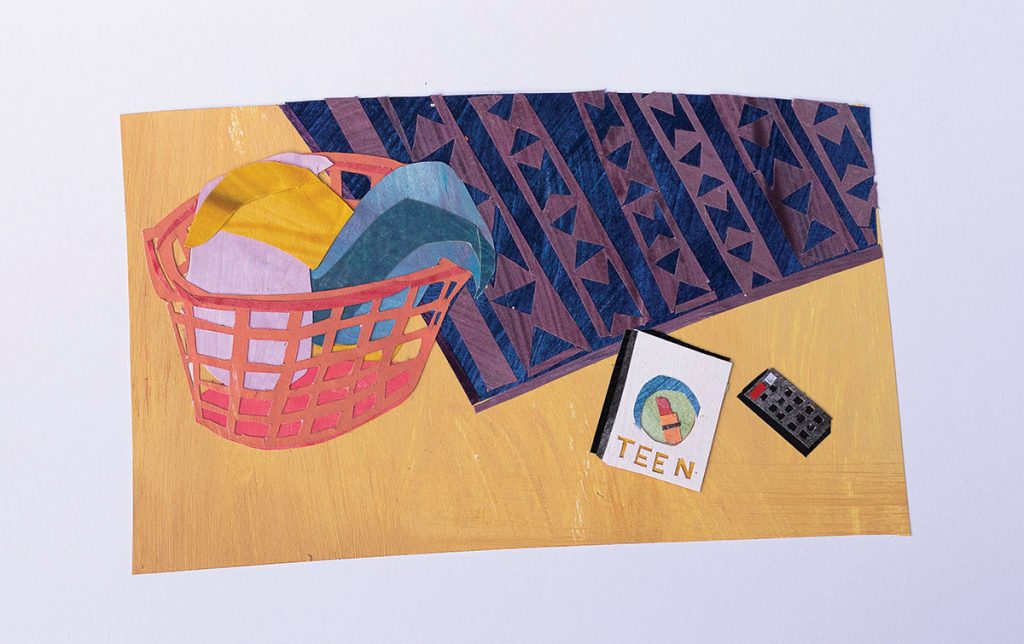
In light of the current crisis, Ragan says she is focusing efforts on her shop.
“I elevate simple moments and thoughts,” says Ragan. “Though they occur in isolation, they are relatable to everyone.”
Chelsea Ragan, Black Mountain. For more information, see chelsearagan.com. The artist’s direct shop link is chelsearaganart.bigcartel.com. She updates her Instagram page daily: @chelsearaganart.